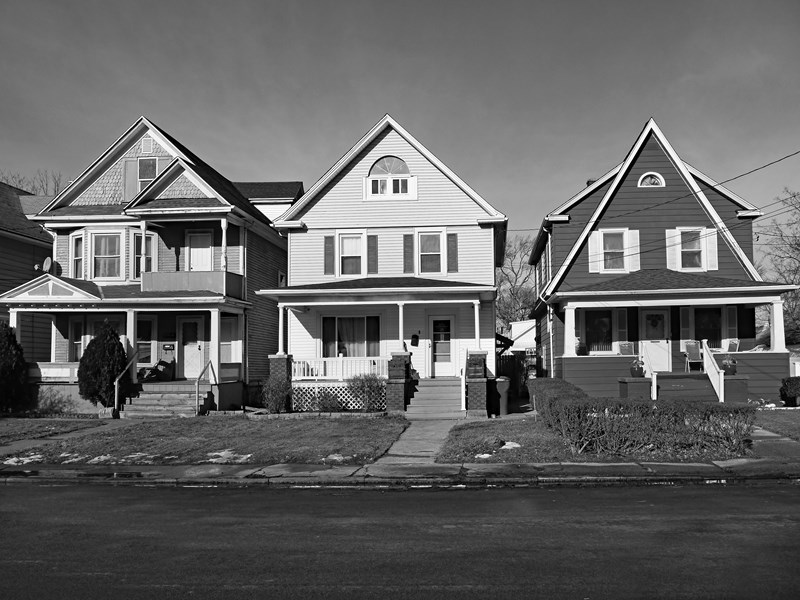Advocates for Basic Legal Equality, Inc. (ABLE) is a non-profit regional law firm that provides high quality legal assistance in civil matters to help eligible low-income individuals and groups in western Ohio achieve self reliance, and equal justice and economic opportunity.
ABLE’s Eviction Prevention Work Continues with Extension of HUD Grant

In 2022, Advocates for Basic Legal Equality, Inc. (ABLE) was one of ten organizations across the country to receive funding through the U.S Department of Housing and Urban Development’s (HUD) Eviction Protection Grant Program. Through this $1 Million grant, ABLE launched the Tenant Eviction Relief Program—a much-needed rural-based program—to assist underserved communities in Allen, Auglaize, Clark, Champaign, Logan, Mercer, and Miami counties. Though the grant came with a two-year commitment, ABLE recently received an extension from HUD to continue this important work for an additional year.
“There is definitely a need for our services in these areas,” says Kristina Coen, Staff Attorney at ABLE. “Many of these counties have not had access to legal aid for evictions or other housing-related issues in a decade or more. Most tenants, especially in eviction cases, do not have the financial resources to hire an attorney. We often see in eviction cases that valid defenses are never raised in court. There are no eviction sealing ordinances in any of these areas either, so even if someone is wrongfully evicted, it stays on their record.”
Through the Tenant Eviction Relief Program and Tenant Information Hotline, ABLE has assisted 424 people with their landlord-tenant legal issues, from providing educational information about landlord-tenant law to serving as legal counsel for tenants in court proceedings. “It took us a lot longer to get the word out than we had anticipated,” adds Coen, “Now that more tenants are becoming aware of our services, we have seen a tremendous increase in the number of households we are assisting.”
Providing Relief in Champaign County
Since October 2023, ABLE has provided a weekly onsite clinic on eviction days at Champaign County Municipal Court. During the clinic, attorneys meet with any qualifying tenant present and review their case to determine if they have any defenses. If the tenant has a defense, the attorney will offer to represent them. If there are no legal defenses, the tenant will be offered free counsel and advice on what to expect, both in the courtroom and after the hearing.
“Landlord-tenant law is not written with the tenant in mind,” Coen says. “We often see tenants come to court thinking they have defenses, only to find out they didn’t follow a required process, like rent escrow, for example, and now the law says those defenses don’t count. The tenants in these cases are losing the game because they were never given the rulebook. Even in the cases where we can’t provide representation, the tenants we’ve spoken with have been grateful that someone at least took the time to explain the process to them.”
Spreading Knowledge in Allen County
The Tenant Eviction Relief Program has ensured that every person facing an eviction in Allen County is notified about their rights and how to receive help through the program and through the Tenant Information Hotline—a free informational hotline where rural residents can receive educational information or be referred to legal assistance and other social services they may qualify for.
“Last fall, we started reaching out to courts about how we might better reach tenants facing eviction,” Coen said. “In response, Allen County Municipal Court agreed to include a full-page color flyer with each eviction summons, which gives information about both the Tenant Information Hotline number and how to apply for legal representation through our program.”
Collaborating in Clark County
ABLE’s community partnership with St. Vincent de Paul in Clark County—an organization that supports many of our programs, including the Tenant Eviction Relief Program and the Haitian Immigration Project—allows our organization to distribute invaluable landlord-tenant information sheets in a frequently visited community space.
ABLE is currently planning a monthly clinic at the Clark County Public Library where anyone in the community with a housing issue can talk to an attorney for free, discuss their individual situations, and learn about the tools and resources available to help them. More details about the housing clinic in Clark County will be available this spring.
Community Building in Logan County
ABLE has resolved to get more involved in the Logan County community, and attends the Logan County Housing Coalition’s meetings, which are held every other month. Participation in these meetings has been instrumental in helping us connect with other community partners and get a pulse on some of the current issues affecting the residents of this area. One of the key relationships that has developed is ABLE’s recognition within the Logan County domestic violence prevention community. A local DV group presented ABLE and Coen with a certificate of appreciation during Domestic Violence Awareness Month in October 2023.
A Lasting Impact
Evictions and other housing issues can have a long-lasting and profound impact on individuals and communities. Numerous studies have been conducted on the impact of evictions and housing insecurity, which go well beyond simple economic harm. Evictions have been shown to negatively affect one’s physical and mental health, present barriers to education and employment, increase infant mortality rates, damage one’s credit, prevent them from getting approved for other housing, and limit their ability to participate in low-income housing assistance programs like Section 8.
With this grant, ABLE provides more than legal assistance to individuals experiencing housing issues; through legal help and education, we create a lasting impact in overlooked rural communities.
“We approach every case as an opportunity to educate not only tenants but also the courts, landlords, and other attorneys. Once defenses are brought to light, many of the commonly overlooked defenses become self-correcting,” Coen says.
While we cannot assist every individual or family facing eviction in these counties, we can help to create a shift in how these communities approach their legal housing issues.
Learn more at https://legalaidline.lawolaw.org/selfhelp/housing/tenant-information-hotline/.
